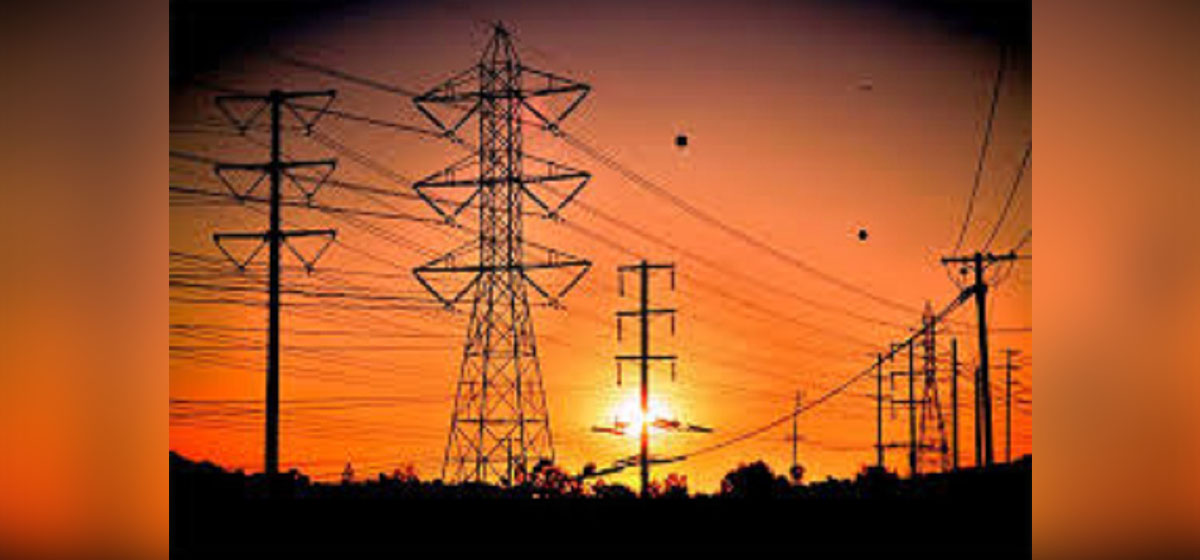Nepali Music Makes History: Sushant KC takes the stage in Times Square
4 days ago
We are a team of professional management and journalists — one of the best in the Nepali media. Our duty toward our readers is to provide them with impartial news, bold views, in-depth analysis and thought-provoking commentary. We shall do this without fear or favor, and we shall be guided by nothing but our conscience.
Know More
KATHMANDU, July 9: The Bangladesh Power Development Board (BPDB) has sent a correspondence to the Nepal Electricity Authority (NEA) to enter into a formal agreement for the purchase and sale of 40 megawatts of electricity produced in Nepal. The letter sent on Monday confirmed that the bid submitted by the NEA for the sale of 40 MW of electricity for the 6-month monsoon period has been accepted by the relevant authorities.
According to the provisions of the law, BPDB called for tenders on January 1, 2024, for the purchase of 40 megawatts of electricity produced in Nepal for a period of five years, in accordance with the tripartite agreement between entities in Bangladesh, India, and Nepal. The NEA had submitted the tender document with the electricity price in the prescribed format. BPDB evaluated the bid documents and informed the NEA of their acceptance.
The NEA must give a written notice of acceptance to BPDB within 7 working days. Following this, BPDB will provide the draft power sale agreement to the NEA, and the agreement should be finalized within 28 days of receiving the draft. This will be a tripartite agreement between the NEA, NTPC Vidyut Vyapar Nigam (NVVN) of India, and BPDB.
Kulman Ghising, managing director of the NEA, stated that all remaining processes are being completed to export electricity to Bangladesh this rainy season. "The draft of the tripartite electricity sales agreement has been agreed upon by all three parties, so the agreement will be finalized soon. After that, we will send the list of projects to the Central Electricity Authority of India for approval to export electricity to Bangladesh. Since it takes time to get approval for new projects, we will send a proposal for approval to export electricity to Bangladesh from the projects that have already received export approval in India," he said.
The NEA plans to export electricity produced by the 25 MW Trishuli and 22 MW Chilime hydropower projects, which were built with an Indian grant and are owned by it, to Bangladesh. Both these projects have received approval for electricity export in India.
NEA to receive 6.40 US cents per unit, electricity to be sold for five years
The NEA will sell 40 megawatts of electricity to Bangladesh for the 6 months of the rainy season, i.e., from June 15 to November 15, every year for five years. The NEA will receive a fee of 6.40 US cents per unit from the sale of electricity to Bangladesh.
The electricity exported to Bangladesh will be transmitted through the first international Dhalkebar-Muzaffarpur 400 kV transmission line between Nepal and India, with the pricing point at Muzaffarpur. The NEA will bear the technical leakage of the transmission line from Dhalkebar to Muzaffarpur. The electricity will reach Bangladesh through the Bahrampur (India)-Bheramara (Bangladesh) 400 kV transmission line.
NEA MD Ghising stated that Bangladesh will cover all taxes and fees, including transmission line fees, leakages, and trading margins taken by NVVN after the Muzaffarpur point. He noted that the per unit rate of electricity will be around 7.6 cents when it reaches the Bangladesh border.
"We will get 6.40 cents at the Muzaffarpur point, and since the payment will be in dollars, there is no risk of currency exchange. The rate we received for selling electricity during the rainy season is reasonable," he said. "The symbolic electricity trade with Bangladesh at the government-to-government level in the first phase will, on one hand, facilitate and support large-scale regional trade in the future and, on the other hand, open many other avenues for electricity trade," he added.
Leave A Comment